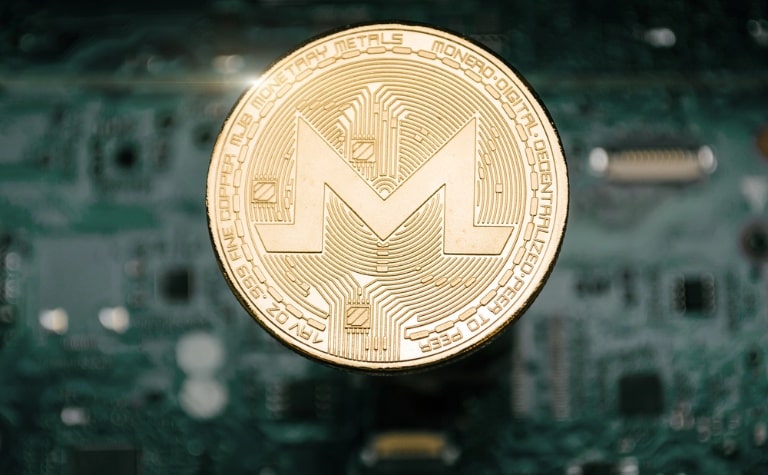What Is Monero (XMR)?

Monero (XMR) is a cryptocurrency that’s known for its commitment to privacy and anonymity. Unlike many digital currencies, Monero is designed to ensure that transactions are completely untraceable, offering users enhanced privacy.
With growing concerns over data privacy and financial security, Monero has gained traction as a leading option for individuals who value confidentiality in their transactions. Platforms like crypto exchange enable users to buy and sell XMR, making it accessible for those seeking to use a secure and private currency.
Understanding how Monero works, how it relates to Bitcoin price changes, and its features is essential for anyone looking to invest or use it.
What Is Monero (XMR)?
Monero (XMR) is a privacy-focused cryptocurrency launched in 2014, built on the CryptoNote protocol.
Unlike Bitcoin or Ethereum, which use transparent blockchains, Monero employs advanced cryptographic techniques to keep transaction details private. This includes hiding the sender, receiver, and transaction amount, making it virtually impossible for third parties to trace activities on the Monero network.
Monero’s distinct features, such as ring signatures and stealth addresses, are key for ensuring anonymity. Ring signatures allow for the mixing of multiple transactions, so it’s difficult to pinpoint the true sender. Stealth addresses ensure that the recipient’s identity remains concealed.
These features, combined with confidential transactions, give Monero its edge in privacy. For those seeking a cryptocurrency that prioritizes confidentiality and anonymity, Monero has become a preferred choice in digital finance.
What Are Monero’s Privacy Features?
Monero’s privacy features are designed to make transactions fully anonymous and untraceable. The core technologies enabling this privacy are ring signatures, stealth addresses, and confidential transactions.
Ring signatures mix a user’s transaction with others, creating a group of potential signers and making it nearly impossible to determine the true sender. Stealth addresses are one-time addresses generated for each transaction to ensure that the recipient’s address cannot be linked to their identity.
Also, Monero employs Confidential Transactions (CT), which hide the transaction amount while still allowing the network to verify its validity. These privacy features work together to obscure transaction details, ensuring that users’ financial activity remains private.
Unlike transparent cryptocurrencies, where all transactions are visible on the blockchain, Monero transactions are completely confidential. This makes it a go-to option for individuals and businesses who prioritize privacy in their financial dealings and seek to avoid surveillance or third-party interference.
What Is the Role of Monero in the Crypto Market?
Monero plays a significant role in the cryptocurrency market by addressing privacy concerns, an area where many cryptocurrencies fall short.
With increasing scrutiny over the privacy of financial transactions, Monero has positioned itself as the go-to digital currency for users who value anonymity. Its robust privacy features make it particularly appealing for individuals who wish to protect their financial data from surveillance or unwanted attention.
Despite facing regulatory challenges due to its privacy-focused nature, Monero continues to gain traction as an essential privacy tool in the digital finance world. It has found its use in various sectors, such as remittances, online purchases, and even in areas with high privacy concerns like the dark web.
The growing demand for secure and private transactions has contributed to Monero’s rise as a trusted cryptocurrency. As the market becomes more privacy-conscious, Monero’s role in providing confidential transactions solidifies its place in the evolving cryptocurrency ecosystem.
How To Buy and Store Monero (XMR)
Buying and storing Monero (XMR) is relatively simple, but it requires careful attention to security. To buy XMR, users can access a crypto exchange that supports Monero.
After registering and completing identity verification (where applicable), users can deposit funds, typically in the form of Bitcoin, Ethereum, or fiat currencies, and then trade them for Monero.
Once acquired, it’s important to store Monero securely. Several wallet options exist, including hardware wallets that offer offline storage for enhanced security. Software wallets like the official Monero GUI wallet or mobile wallets like Cake Wallet also provide convenient solutions for storing XMR.
However, it’s essential to back up the wallet’s private keys or seed phrase to prevent loss. Some users prefer running their own Monero node for increased privacy. Regardless of the method, ensuring the safety of private keys and recovery phrases is vital to protecting funds from theft.
What Is the Future of Monero (XMR)?
The future of Monero (XMR) appears promising, with ongoing development focused on enhancing its privacy features and expanding its user base. As demand for privacy-focused cryptocurrencies grows, Monero’s position as a leader in secure, anonymous transactions is expected to increase its relevance in the market.
However, regulatory scrutiny could present challenges as some countries seek to curb the use of privacy coins.
Monero: The Future of Privacy in Cryptocurrency
Monero (XMR) remains a leader in privacy-focused digital currencies. As demand for secure transactions rises, its role in protecting financial anonymity will continue to shape the future of cryptocurrency.





